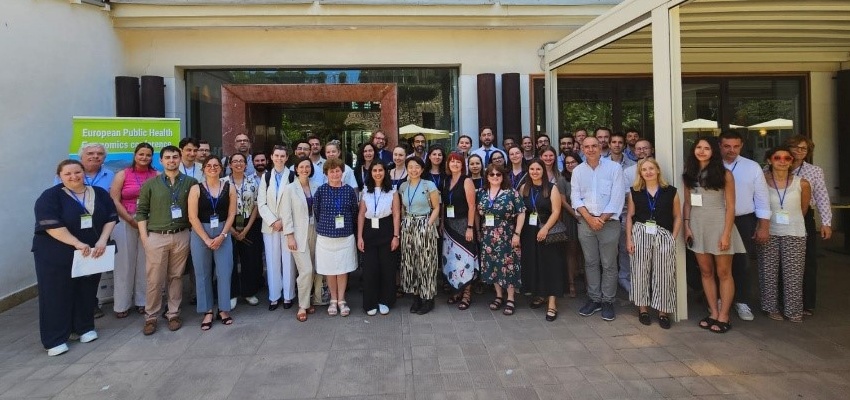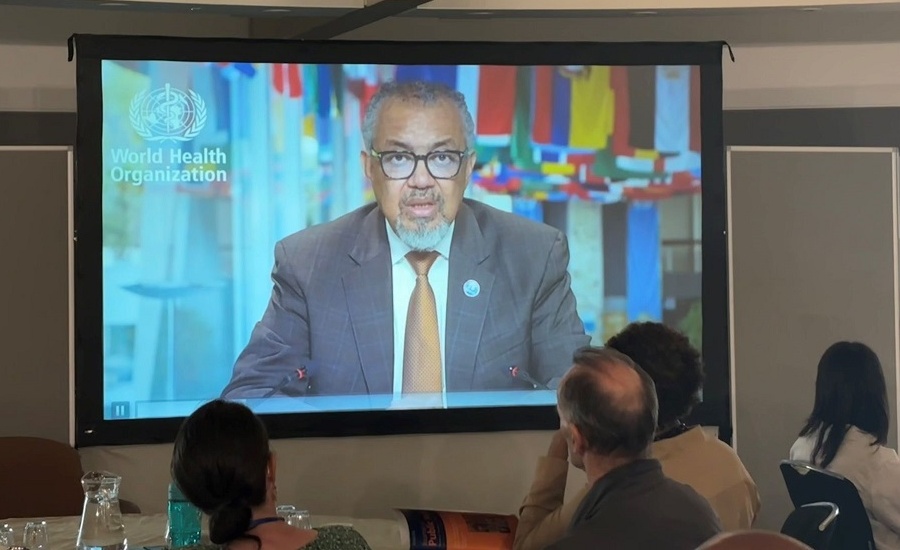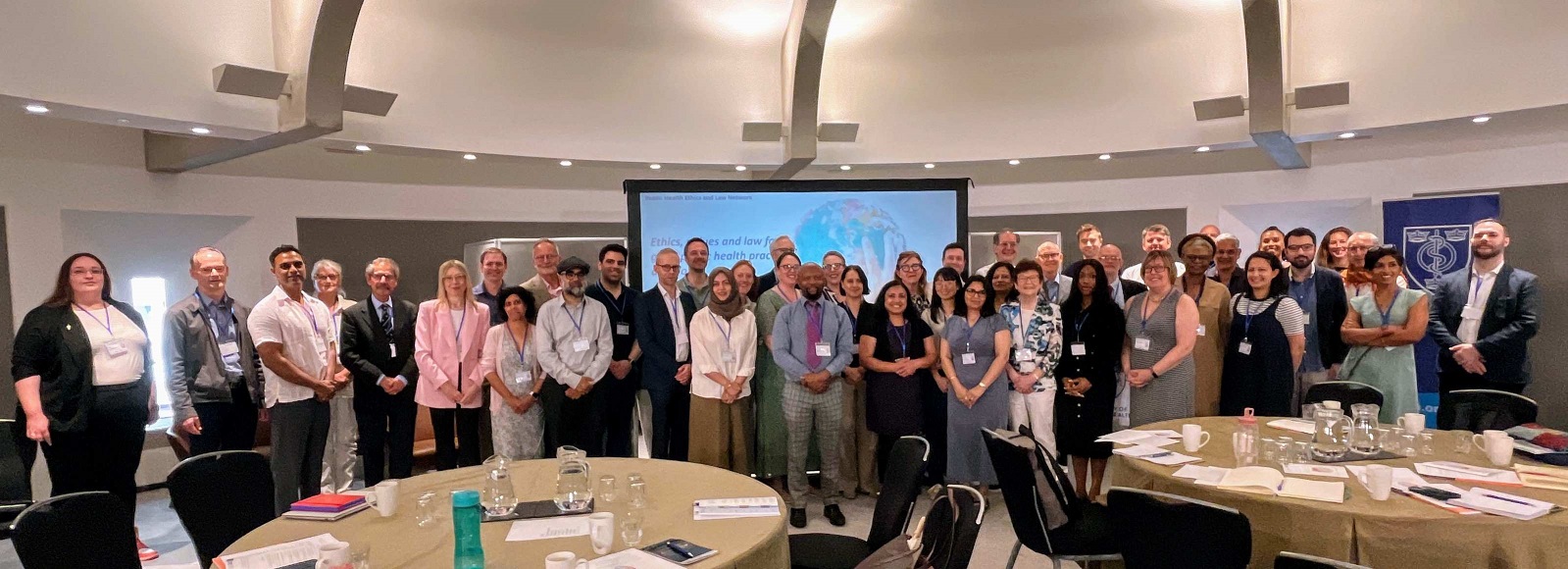.png) |
The European Public Health Association Newsletter - July 2025 |
|
Newsletter - July 2025 |
1. EditorialWhat the 2025 EU4Health work programme tells us — and what it missesThe release of the EU4Health work programme is a moment to reflect: where is European public health heading? What are we prioritizing, and what are we leaving behind? This year, those questions feel sharper than ever. The 2025 programme was published only in late July, after months of delay. That timing mattered. It left public health NGOs in limbo, unable to plan, partner, or act. Activities were paused, scaled down, or shelved. Whether intended or not, the message was clear: the core work of public health organizations isn’t being treated with the urgency it demands. To be clear, there is much we support. The focus on NCDs, cancer prevention, digitalization, and workforce development reflects urgent and shared priorities. These are challenges EUPHA and our network of Sections and members actively contribute to — through research, policy advice, and practice. But we must also be honest about what’s missing. The entire Civil Society budget has been cut off. The complete removal of operating grants in 2025 marks a significant turning point. These grants, which represented just 1% of the 2024 EU4Health budget, enabled 30 health NGOs to maintain their structural capacity and serve as essential watchdogs for transparency, accountability, and health equity. This 1% that the work programme no longer funds represents the foundations of European public health cooperation. What risks being lost: cross-border knowledge exchange, network coordination, public communication, policy dialogue, and advocacy. These are not optional. The 2025 budget of €571 million looks substantial on paper, but it won't go far without core support for those delivering the work. This decision came despite Framework Partnership Agreements signed in good faith with the European Commission in November 2024. Public health NGOs across Europe are now operating under intense pressure. Staff have been let go. Initiatives have been halted. Core activities are at risk. We are now expected to compete for short-term project grants that do not support long-term strategy, continuity, or infrastructure. The result is that the connective tissue of European public health is being stretched dangerously thin. When it comes to EUPHA, what is endangered are the conditions that allow science to inform decisions and civil society to drive meaningful progress. Of course, we are adapting. We’re building new partnerships, joining consortia, and streamlining where we can. But let’s be transparent: some of our most impactful initiatives — like European Public Health Week, or our support to EUPHAnxt, our network for students and young professionals in public health — were only possible thanks to the operating grant. Without similar support, these activities are at risk. When you fund NGOs, you're not only funding the paid team — you're enabling the mobilization and coordination of thousands of volunteers. This is what makes us different from the private sector: we lead with values, we gather communities. At EUPHA, thousands of hours are contributed by Section presidents, young professionals in the EUPHAnxt team, and governing board members. This represents enormous added value that cannot be replicated elsewhere. We are not giving up, and we will step forward, together with you, and for you. But we must call this out: the EU’s ambitions for equity, prevention, and resilience will fall short if civil society is left without the resources to act as effective partners in this work. To all working toward a healthier Europe — in research, in practice, in policy — we ask you to join us in making the case. Public health is not a short-term project. It’s a long-term investment in Europe’s well-being, prosperity, and security. It must be planned, protected, and properly funded. We’re ready to do our part. Are you with us? Dr. Tit Albreht, EUPHA President |
2. EUPHA newsHighlights from the 1st European Public Health Economics Conference (26-27 June 2025, Palermo, Italy)Last month, over 70 researchers and professionals gathered in Palermo to participate in the 1st European Public Health Economics Conference. Co-organized by the EUPHA Public Health Economics Section, SiTi, AIES, the University of Palermo, and BEST-COST, the event marked a pivotal moment for researchers, policymakers, economists, and public health professionals. The two-day conference focused on the pivotal role of public health economics in forging fairer and more sustainable health systems. Miqdad Asaria (London School of Economics and Political Science) opened the conference with an inspiring session on the interconnections between health equity and climate change, highlighting how economic tools should be used to address structural imbalances that affect the most vulnerable individuals. The EUPHA Public Health Economics Section set the tone for the more than 50 presentations across parallel sessions. With a commitment to intergenerational learning, these presentations were led by seasoned experts, PhD students, and early-career researchers. The presentations focused on a range of emerging topics in public health economics, such as:
Participants were invited to reflect on “What is Public Health Economics?” in the closing ceremony. Some of the most repeated answers were “equity”, “prevention”, “value”, “policy”, “prevention” and “impact”, which denotes that public health economics is a mindset dedicated to informed decision-making that can save and transform lives.
Round table summit: Ethics, values and law for good public health policy and practiceOn 18–19 June 2025, EUPHA’s Ethics in Public Health Section joined forces with the Global Network for Academic Public Health, Association of Schools of Public Health, Faculty of Public Health (UK), and other partners to host a roundtable summit on ethics, values, and law for good public health policy and practice. Held at the Royal College of Physicians in London, the event brought together experts to explore how ethical frameworks and legal principles can strengthen public health. In a special video message, Dr Tedros Adhanom Ghebreyesus, Director-General of the World Health Organization, reflected on the inextricable link between health and peace, reinforcing the importance of ethical and rights-based approaches in public health leadership and decision-making.
The summit was followed by a working session to define next steps. Participants agreed to establish a community of learning, collaboration, and practice to advance work in areas such as:
Videos, photos, programme and presentations are now available online.
International Conference “Trauma‑Informed Public Health” at Gdańsk Medical UniversityFrom June 3, 2025, over 100 researchers, experts, and practitioners gathered at Gdańsk Medical University (GUMed) to explore trauma not merely as individual suffering, but as a profound public health challenge. Hosted by EUPHA’s Public Mental Health Section in partnership with GUMed’s Department of Public Health and Social Medicine, the conference received honorary patronage from the Mayor of Gdańsk, the Polish Presidency of the Council of the EU, and GUMed’s Rector. Key themes covered during the conference included:
The conference underscored that trauma-informed public health is no longer optional - it is essential. For full details and further information, you can view the official conference summary on the Gdańsk Medical University website (in Polish). New EJPH issue highlights research and leadership across EuropeThe European Journal of Public Health (EJPH) published its latest issue in June 2025 (Volume 35, Issue 3), featuring timely and diverse research across key areas of public health. Articles cover topics such as health services research, policy, non-communicable diseases, COVID-19, child and adolescent health, and more. This edition offers valuable insights for researchers, policymakers, and practitioners working to advance public health across Europe. A notable feature in this issue is an article by Hans Kluge, WHO Regional Director for Europe, and colleagues. It introduces the Pan-European Leadership Academy (ELA) - a flagship initiative responding to the need for stronger, more connected, and future-ready health leadership in the WHO European Region. With a focus on peer-to-peer exchange, real-world problem solving, and values-based leadership, the Academy is already fostering new models of collaboration and capacity-building at all levels of public health leadership. Explore the full issue and read the ELA feature online. EUPHA publishes position paper on EU LGBTIQ Equality Strategy 2026–2030EUPHA and its Sexual and Gender Minority Health Section have submitted a position paper in response to the European Commission’s initiative to renew the EU LGBTIQ Equality Strategy for 2026–2030. Grounded in legal obligations, public health evidence, and the lived experiences of LGBTIQ+ communities across Europe, the paper outlines 11 urgent priorities to address growing health inequities and protect progress made under the current strategy. While the EU has taken important steps towards LGBTIQ+ inclusion, these gains remain vulnerable. Gaps in enforcement, rising anti-LGBTIQ+ rhetoric, and unequal access to health and justice services highlight the need for urgent and coordinated action. EUPHA welcomes the Commission’s recognition of health—especially mental health—as a priority in the new strategy. However, we call for a broader, intersectional approach and stronger stakeholder engagement to ensure policies are inclusive, practical, and rooted in public health science. We reaffirm our commitment to an EU where LGBTIQ+ people can not only live free from discrimination, but also thrive in health, dignity, and opportunity. EuroHeartPath website goes live: redesigning cardiovascular care across EuropeThe official website for EuroHeartPath is now live. This major €26 million Horizon Europe – Innovative Health Initiative project brings together 35 leading organizations across 10 EU countries to transform cardiovascular care in Europe. EuroHeartPath aims to create more effective, equitable, and patient-centered cardiovascular health systems by:
The new website offers in-depth project updates, insights into cutting-edge clinical innovations, and resources for public health professionals, researchers, and policymakers. EUPHA is proud to be a partner in EuroHeartPath. Our role is to support improvements in care delivery by sharing best practices across countries, helping ensure patient data is used ethically and safely, and contributing to long-term planning for how the project’s results can be sustained and implemented. Visit euroheartpath.eu to explore how the project is reshaping the future of heart care across Europe. |
3. European Public Health ConferenceDon’t miss out: EPH Conference registration is filling fastRegistration for the 2025 EPH Conference in Helsinki is well underway and demand is strong - we’re already at two-thirds of our capacity! If you’re planning to attend, we strongly encourage you to secure your place as soon as possible. With a dynamic programme this year’s conference promises to be one of our most impactful yet. Don’t delay - register today and join us in shaping the future of public health in Europe. EPH 2025 plenary programme now live – explore what’s in storeThe theme of this year’s EPH Conference, investing for sustainable health and well-being, highlights that improving population health and well-being is an investment, not an expense. This investment benefits society and fosters a sustainable economy. The main theme will be further explored in the plenary sessions:
Enhance your EPH experience with a pre-conference sessionIf you're planning your time in Helsinki, don’t overlook the pre-conference day on Tuesday 11 November. These focused sessions are a great way to dig deeper into key topics before the main programme begins. Covering themes such as AI, cancer prevention, climate and health, the European Health Data Space, health literacy, mental health, vaccination uptake, and more, the pre- conference programme brings together leading voices for in-depth learning and exchange. The THCS Annual Meeting will also take place during this day. Pre-conferences require separate registration. You can select your session when registering for the main conference, or add one later by contacting Explore the full pre-conference line-up. Webinar series Helsinki 2025: Save the date - 11 September 12:00–13:00 CESTTowards Resilience and Wellbeing: Rethinking Health Systems in a Planetary Health Era In the lead-up to EPH Conference 2025 in Helsinki, this fourth webinar in our series brings together distinguished experts and practitioners to explore how health systems can shift from crisis response to long-term resilience within a wellbeing society and economy— benefiting both people and the planet. It will also highlight the role of public investment in promoting health and sustainability. More details coming soon! |
4. Call for proposals, job opportunitiesPhD and Postdoc positions in food policy and food systems researchThe Chair of Public Health Nutrition at the University of Bayreuth, Germany is recruiting PhD and post-doctoral researchers to join a dynamic team working on food policy and food systems research. The positions focus on evaluating policy interventions that address health, sustainability, and animal welfare at local, national, and global levels. Candidates should have a Master’s or PhD in public health, nutrition, policy, political science, medicine or a related field, with strong qualitative or quantitative research skills and fluency in English (German is an asset). The roles offer the opportunity to contribute to teaching and outreach activities within an interdisciplinary and supportive academic environment. The application deadline is 10 August 2025. For full details and to apply, visit the University’s website. Join the TUM Health Literacy Team: PhD or PostDoc position availableThe Professorship of Health Literacy at the Technical University of Munich (TUM), together with the TUM WHO Collaborating Centre for Health Literacy, is currently recruiting a research associate to join their growing team. The position is open to either a PhD candidate (75% FTE) or a PostDoc (100% FTE, to be confirmed), and offers the opportunity to contribute to national and international research projects focused on health literacy, school health, prevention, NCDs, digital health, and more. Key responsibilities include planning and evaluating studies, data analysis, grant writing, scientific publishing, and—depending on experience—leadership and teaching. Applicants should have a strong background in public health or related fields, excellent quantitative research skills, fluency in English (German B2–C1 preferred), and a willingness to relocate to Munich. Interested candidates should submit their application documents, including CV, motivation letter, certificates, and transcripts, by 15 August 2025 to Mrs. Märkl at info.hl@mh.tum.de Assistant Professor position in Public Health SciencesThe Karolinska Institutet in Stockholm, Sweden, is recruiting a highly motivated researcher for a full‑time Assistant Professor position in Public Health Sciences within its Department of Global Public Health. This six‑year appointment comes with research funding and the potential for promotion to Senior Lecturer. The successful candidate will independently lead and further develop a research agenda addressing key population‑level health challenges - ranging from structural and individual determinants to health equity, sustainable development, and disease prevention - using rigorous qualitative, quantitative, and randomized trial methodologies. Applicants must hold a PhD in a relevant field and have at least two first‑ or last‑author peer‑reviewed publications, with a preference for those who earned their doctoral degree within the past seven years. Candidates should demonstrate a strong record in securing funding, publishing in top-tier journals, and working in international and interdisciplinary settings. The application deadline is 2 September 2025 (23:59 CEST). For full details and to apply, visit the Karolinska Institutet recruitment portal. |
5. Upcoming courses and conferences
|
6. Interesting publicationsDevelopment of the World Health Organization Global competency and outcomes framework for the Essential Public Health FunctionsCompetency-based education has variable uptake in public health, despite calls for effective education-to-employment pathways. A WHO and partners’ Roadmap to strengthen the public health and emergency workforce called for a holistic globally-relevant competency-based framework oriented to practice and delivery of the Essential Public Health Functions (EPHFs). This research answers the question: What are the relevant competencies and practice activities for the breadth of the public health workforce to deliver the 12 globally-relevant EPHFs? Read the article in full here. Vulnerable populations need protection in an age of impunityThe global health community is facing a pivotal moment as it struggles to respond to increasingly complex, interrelated challenges. Factors including the climate crisis, conflict, and political instability are driving large scale population displacement as global institutional frameworks are weakening. International norms are being eroded. This is evident in the targeting of education and healthcare infrastructure in conflict zones, shrinking space for humanitarian work, denial of due process to migrants and displaced populations, and disregard for international law—all of which contribute to a climate of impunity. Read the opinion piece in full here. Health workforce as a climate and health priority in nationally determined contributionsThe health workforce is a core component of climate-resilient health systems. However, there is a projected global shortage of 11·1 million health workers by 2030, with more than 5 million of this shortfall in the WHO African region. These shortages are most severe in countries that are highly vulnerable to climate change and have the fewest resources to combat its effects. Inequities in the global distribution of health workers are exacerbated by their migration from low-income countries to high-income countries in search of better opportunities. Employers in high-income countries contribute to this trend by actively recruiting licensed health professionals—often without considering the strain this approach places on the health systems of low-income countries. This practice contravenes WHO’s Global Code of Practice on International Recruitment of Health Personnel and deepens global health disparities. Read the article in full here. |
|
Unsubscribe If you would like unsubscribe from the EUPHA newsletter then please click here. |


